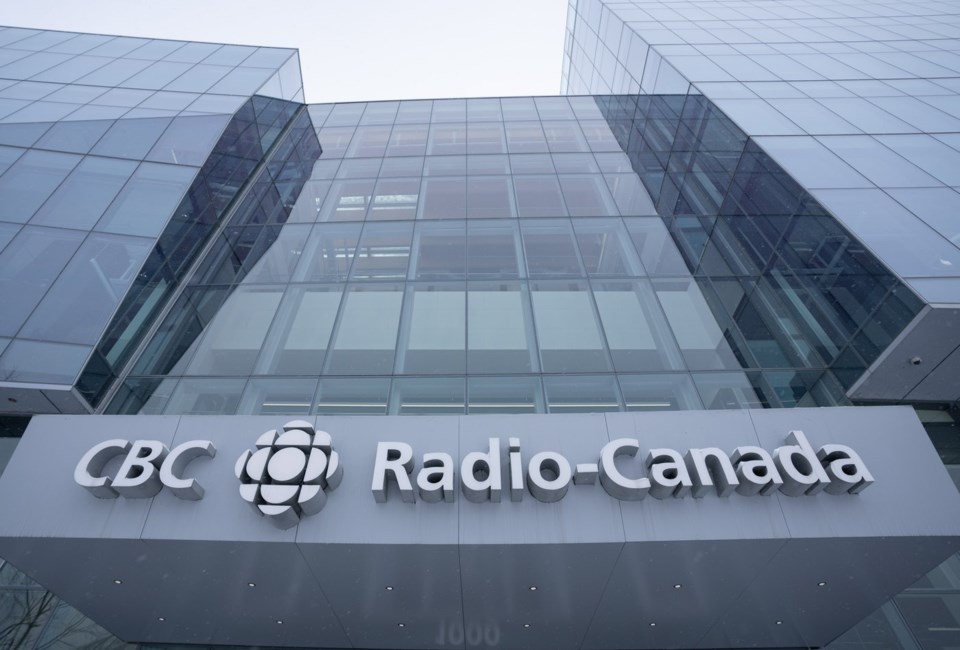OTTAWA — At the beginning of the year, CBC was facing the very real prospect of being defunded by a Conservative government.
But after the political winds shifted in favour of Mark Carney’s Liberals, the public broadcaster was granted a reprieve — giving the minority Liberal government what could be a short runway to implement its proposed changes.
"I do think that the Carney victory has secured the future of the CBC for now, at least as long as they're in power," said Jessica Johnson, a senior fellow at McGill University’s Centre for Media, Technology and Democracy.
She predicted the CBC will be "safe for the next 18 months."
During the election, the Liberals promised to make the CBC's federal funding statutory — which would make it harder for future governments to eliminate it. The party's platform also promised an initial $150 million increase in annual funding.
It outlined proposed changes to the public broadcaster’s mandate, including a governance plan and strategies to strengthen local news, combat disinformation and transmit life-saving information during emergencies.
Canadian Culture Minister Steven Guilbeault said in an online post Wednesday the Carney government will "protect Canada’s national identity by strengthening CBC/Radio-Canada."
The government might not have much time to fulfil that commitment. The Liberals are just shy of a majority in Parliament and their minority status means they have to rely on other parties to pass legislation. It also means they could be heading into an early election if those parties withdraw their support.
Johnson has been conducting surveys on how Canadians feel about the CBC. She found that nearly half of Canadians — 45 per cent — say it's more important now to maintain CBC/Radio-Canada in light of the change in Canada's relationship with the U.S. under President Donald Trump.
"That means that something is happening with nationalism and infrastructure, and the way people are thinking about that threat that the U.S. poses," she said.
Advocacy group Friends of Canadian Media ran a campaign during the election asking Canadians to vote to save the CBC.
The group's executive director Marla Boltman said "we got a little help from Trump, obviously, with his tariffs and his jabs about Canada being the 51st state."
Monica Auer, executive director of the Forum for Research and Policy in Communications, said “it’s not so much that broadcasting in particular is critical to Canadian sovereignty, but rather that it highlighted the fact that Canada's sovereignty requires a broad range of tools to maintain.”
Boltman said there will always be those who want to see public broadcasting defunded.
"What the Conservatives tried to do in this past election was the biggest threat we've seen to the CBC, I think, in our lifetime," she said.
"While I do expect to see those voices continue, I also think that we are at a point in time and in history where we need this government to work together to protect our nation as a whole."
Peter Menzies, a senior fellow at the Macdonald-Laurier Institute, pointed out that Conservative Leader Pierre Poilievre is the third party leader in a row "who has won the leadership on a defund-the-CBC mantra," after Erin O’Toole and Andrew Scheer.
"The antipathy between the Conservatives and their supporters goes back a long time, but most visibly since the CBC sued the Conservatives in the late stages of the 2019 campaign over use of their content as a copyright violation," Menzies said.
He said the move "created an animosity in that relationship which is unforgotten and unforgiven."
"It's probably in the best interest of both parties at this stage to sit down and talk about how that can be repaired," he added.
Menzies said Conservative supporters are likely to stay hostile unless the CBC makes "some changes, some honest gestures, to be more inclusive of their perspectives."
Given the feelings that many Conservatives have toward the CBC, a Liberal government effort to get the CBC to fight disinformation could "absolutely" backfire, Menzies said.
"If you want to fight misinformation, just be good at what you do … and build public trust there," he said.
Speaking to reporters a day after being sworn in, Guilbeault said the government would also look at the proposals outlined by his predecessor, Pascale St-Onge. They included prohibiting CBC from running ads during news programming and from charging subscription fees for digital products such as CBC Gem.
Guilbeault was non-committal about whether he would address the issue of ads on CBC. He suggested his plan would incorporate some, but not all, of St-Onge’s proposals.
In an online post later in the day, he praised a decision by the CBC board of directors to stop paying individual bonuses to employees. The move eliminated a practice that had become the target of Conservative attacks on the public broadcaster, which paid out millions of dollars in bonuses after eliminating hundreds of jobs.
Johnson said the promise to make CBC funding statutory is very important since the CBC budget is currently presented as part of the overall budget in Parliament, and MPs must vote on it.
"And what that means is that it's always going to be vulnerable to the moment, or what else the government is spending on that year," she said.
Johnson said the plan outlined by Carney for the CBC was "fiscally responsible."
She noted Carney campaigned on the economy. "I think the proposals that his party put forward for the CBC are not radical. They're increasing funding by $150 million but they're not doubling it," she said.
"To me, it basically keeps the CBC in its current form."
This report by The Canadian Press was first published May 17, 2025.
Anja Karadeglija, The Canadian Press




